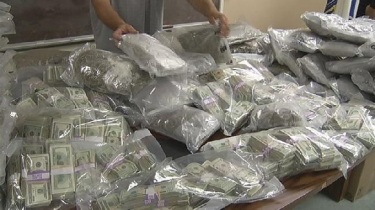A Whiff, But Not a Breath of Fresh Air
A Whiff, But Not a Breath of Fresh Air. For years, the government has been touting their success in taking drug dealer’s assets, thus advancing their war on drugs. What they have consistently denied is what is, in war, euphemistically called “collateral damage.” The government shows many millions of dollars alongside great quantities of drugs and proudly proclaims that they got the drugs and the profits. What they don’t tell is the rest of the story.

A Whiff, But Not a Breath of Fresh Air
What they don’t show is innocent people who accumulate cash in savings or a cash-intensive business who are stopped by police and have to prove their money was legally acquired. The government will seize the money, then call an “expert” police witness to say the way the money was packaged or carried was indicative of drug proceeds. However, I have seen these “experts” say money carried in a roll, folded in half, carried in bundles of round amounts, put in plastic, put in paper bags, or just not carried the way most people carry pocket money (a few dollars in a wallet) in indicative of drug money. In other words, any way you carry money is indicative of drug money.
A Judge, who has presided over countless drug trials, then finds “by a preponderance of the evidence” (51%), that the money was drug money and the government seizes it. Often, maybe more often, the amount is just a few thousand dollars and the victim of the seizure doesn’t want to pay an attorney more that is at stake to try to recover it.
A Whiff, But Not a Breath of Fresh Air
Put another way, imagine you have a nice watch…one that cost a couple thousand dollars. A police officer says drug dealers have nice watches and takes it from you. An attorney would cost more than the value of the watch, so you don’t hire one. An “expert” police officer then testifies that drug dealers wear nice watches, so the Judge says the government can have your watch…even though you were never charged with a crime.
The Arizona legislature, in an uncommon change in the law of forfeiture, has given us a whiff of fresh air. Now, the Judge has to find by “clear and convincing evidence” that the money was illegally obtained. In addition, if the person whose money was taken “substantially prevails” at the hearing, the State has to pay his attorney fees. Finally, the Attorney General has to approve a city or county spending any forfeited funds, meaning they have to be spent only on what they are legally allowed to be spent on…with oversight.
Hear the police howling? I can. But, it is just a whiff of fresh air. A true breath would be to release any money taken where no criminal conviction ensued, without the need for lawyers, hearings, and “expert” police testimony. That would be a true breath of fresh air.
